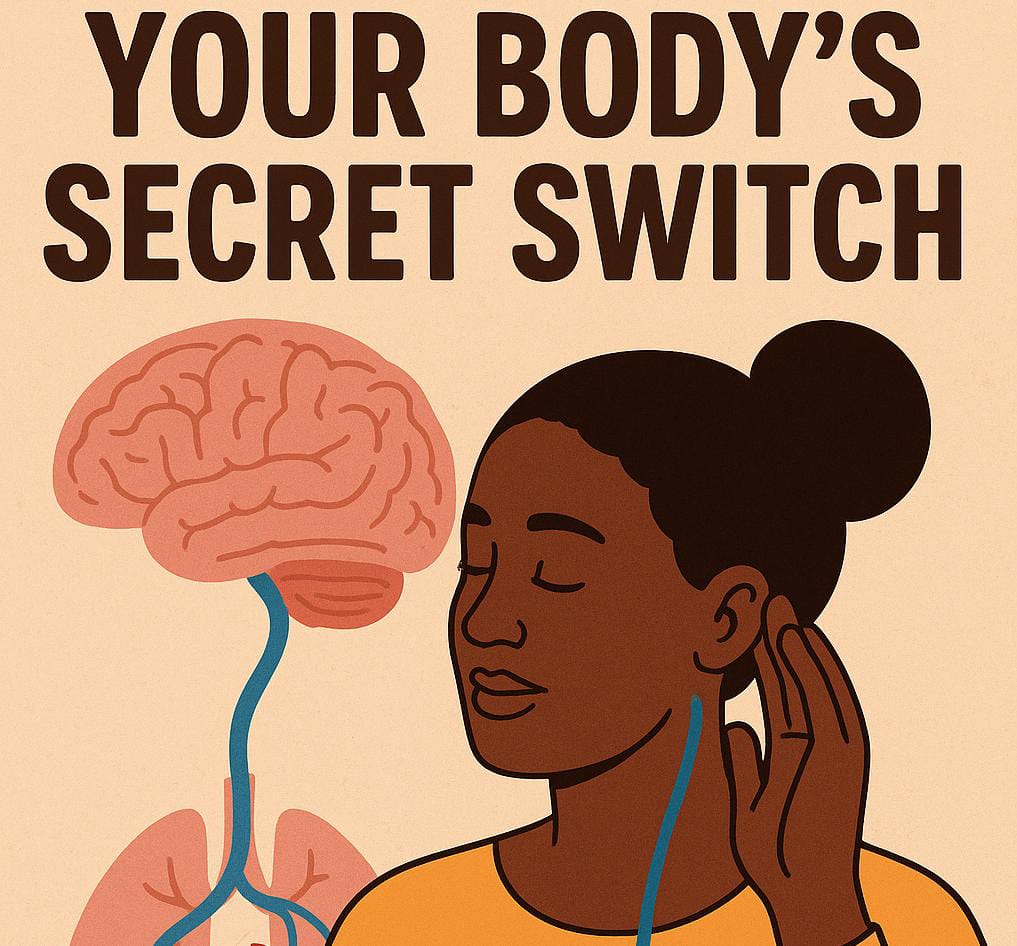Most people have never heard of the vagus nerve, yet it’s one of the most powerful parts of the human body. It runs from your brain down to your major organs — like your heart, lungs, and stomach — acting as a communication link that helps control how your body reacts to stress.
These days, social media is filled with advice on how to “heal” or “activate” the vagus nerve — from humming, deep breathing, gargling water, or even using special gadgets that send small electric pulses to your body. The goal: to feel calmer, reduce anxiety, and fight burnout.
Testing the Nerve
Reporter Ruth Clegg joined a somatic yoga class in Stockport, UK, where participants used gentle movement, breathing, and humming to relax.
Instructor Eirian Collinge explained that these methods help people reconnect with their bodies and calm their nervous systems — but she warned there’s no magic fix, only regular practice.
One participant, Sarah, said the experience was “life-changing.” She described it as “flossing her brain” — helping her quiet her thoughts for the first time.
Her partner Xander added that it helped him handle depression by recognizing and managing his emotions better, rather than fighting them.

The Science Behind It
The vagus nerve is part of the autonomic nervous system, which controls things we don’t think about — like heart rate, digestion, and breathing.
It has two sides:
The sympathetic system, which triggers “fight or flight” when we’re stressed.
The parasympathetic system, which helps the body relax — and the vagus nerve plays a key role in that process.
If the two systems are not balanced, we can feel tense, anxious, or exhausted.
What Doctors Say
Experts agree that the vagus nerve affects mental health, but opinions differ on whether we can “train” it ourselves.
Professor Hamish McAllister-Williams, a psychiatrist, said that medical devices implanted inside the body can stimulate the vagus nerve and treat serious conditions like depression and epilepsy. These devices act like a pacemaker for the brain, sending tiny electrical signals to release mood-regulating chemicals like serotonin and dopamine.
However, non-surgical gadgets that claim to do the same thing from outside — such as clips worn on the ear or neck — are still being studied. Some research suggests they may help, but proof is limited.
A Burnout Story
One user, Lucy Lambert, a former teacher, said using these wearable vagus nerve stimulators helped her recover from burnout.
She had been exhausted and anxious until her brother suggested a vibrating device that she now uses for 10 minutes twice a day. She says it doesn’t “cure” stress but helps her body relax and makes healing possible.
Lucy now runs a small business helping others build confidence and emotional balance.
She admits it’s hard to tell whether the gadgets work directly or if it’s simply because she’s finally taking time to rest — but either way, understanding how her body works has given her control over her mental health.
Doctors’ Advice
Pain expert Dr. Chris Barker said the vagus nerve is real and important, but we’re still learning how best to support it.
He warns that people with heart or breathing problems should talk to a doctor before trying to stimulate the nerve themselves.
“The key,” he says, “is finding what works for you — slowly, safely, and with patience.”
Summary
The vagus nerve connects your brain and organs and helps you manage stress.
Breathing, humming, and gentle movement can help calm the nervous system.
Wearable gadgets are promising but not yet scientifically proven.
Understanding your body’s signals can improve mental health and emotional control.
Culled from BBC

